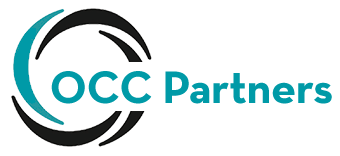Travel Nursing – A Flexibility Win-Win
Everyone would love more flexibility and better balance of work, family, hobbies and interests. But flexibility in nursing can seem a remote dream. Not true.
Travel Nursing May Be a Great Solution!
 If you’ve ever considered becoming a travel nurse, there’s lots of options today from local travel that keeps you in the communities you know, to faraway international travel roles that provide interesting new adventures. Travel Nursing can be an exciting career with lifelong opportunities and the demand is high. So, what does it take to make this your career?
If you’ve ever considered becoming a travel nurse, there’s lots of options today from local travel that keeps you in the communities you know, to faraway international travel roles that provide interesting new adventures. Travel Nursing can be an exciting career with lifelong opportunities and the demand is high. So, what does it take to make this your career?
If you’re interested in becoming a Travel Nurse, you need to be a licensed Registered Nurse, preferably with a bachelor’s degree and a minimum of 1-2 years’ current hospital or clinical experience. While the mandatory minimum is one year, many facilities prefer two years or more. Your experience should include day-to-day experience in a hospital setting and ample time spent in the role with a solid understanding of systems and protocol, and you’ll want experience handling unexpected and possibly challenging conditions.
Remember, every time you take a travel assignment, you’re going in with minimal history of the current situation or the patient population, so the ability to adapt quickly will be critical.
Strong problem-solving skills and learning on the fly will enable you to ramp up and become productive quickly. Most organizations include training, perhaps 1-2 days of training or even less, so having previous experience and being able to learn quickly are important strengths to have. You possess the ability to practice with little direction and assess situations quickly to provide the best possible healthcare timely and efficiently.

Experience working in fast paced environments is a solid asset for travel nurses. Travel nursing is a great choice for nurses that love to challenge themselves and experience a variety of environments, and those who specialize in specific units, but want more flexibility.
The best specialties for Travel Nursing are: ER, ICU, Labor and Delivery, OR, ICU, Elder Care, NICU, PICU, Telemetry and Home Care.
While travel nursing offers flexibility, it also is a great choice for lifelong careers. Experiencing a move or life change? Not ready to retire? Try travel nursing. If you’re interested in nursing and flexibility, there will be opportunities.
Travel nursing is a career choice that provides multiple opportunities, the ability to travel to new communities or cities, the prospect of working at premiere hospitals and clinics and enjoy the flexibility you want.
For more information about opportunities or next steps, check out our employment opportunities or contact us!



 You took time out from your work, now you’re wondering…how do I explain it. Will it hurt my ability to get another job, much less a job I want?
You took time out from your work, now you’re wondering…how do I explain it. Will it hurt my ability to get another job, much less a job I want? Right from the start…on your resume is best. Use a chronological resume and put it on there. We can’t say it enough, transparency, transparency, transparency. You can state it like this on your resume:
Right from the start…on your resume is best. Use a chronological resume and put it on there. We can’t say it enough, transparency, transparency, transparency. You can state it like this on your resume: